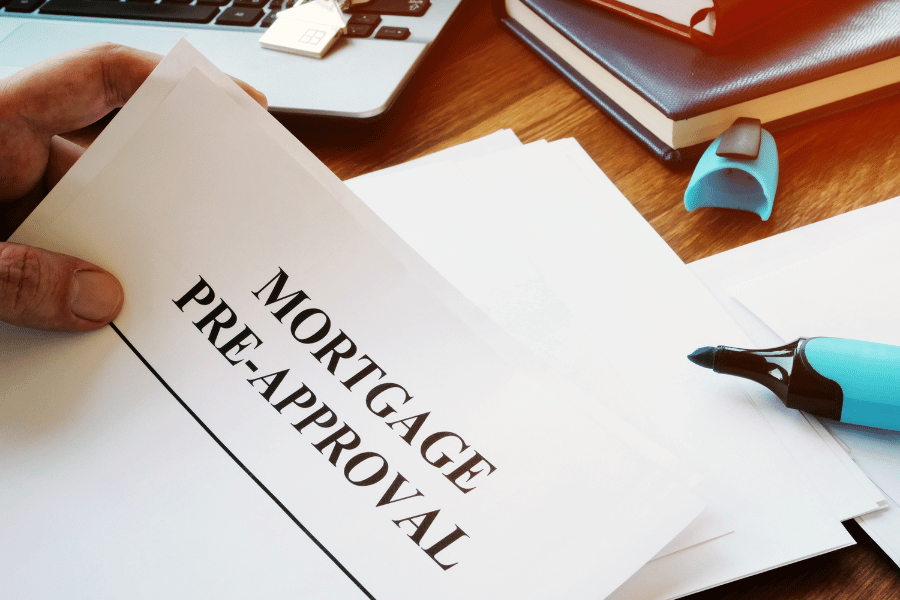Everything You Need to Know About Mortgage Protection Insurance
What is Mortgage Protection Insurance (MPI)? Here is everything to know about Mortgage Protection Insurance!
Mortgage protection insurance (MPI) is a policy that pays off your mortgage if you pass away during the mortgage term. If you share the mortgage with someone, both individuals must be covered under mortgage protection insurance. The policy lasts the same length of time as your mortgage. For example, if your mortgage is 30 years long, mortgage protection insurance must also be in place for 30 years.
Shortly after securing a mortgage and closing on a home, you may begin receiving letters in the mail urging you to purchase mortgage protection insurance. As a homeowner, planning for the future – especially unexpected life circumstances is always wise. Mortgage protection insurance, frequently called mortgage life insurance, is an insurance policy that will pay off the mortgage if the homeowner dies. Certain mortgage protection insurance policies also cover the homeowner if they become disabled or sick or lose their job. Mortgage protection insurance does not replace regular life insurance but can be used in conjunction with a life insurance policy.
Purchasing a home is critical to securing you and/or your family's future, as it will likely grow in value over time. However, it is important to protect your co-signer or loved ones if you become ill, disabled, or pass unexpectedly. This article will explore the pros and cons of mortgage protection insurance, how the policy works, and how homeowners can obtain mortgage protection insurance.
Mortgage protection insurance matches the same amount that you owe on your mortgage. If you owe $20,000 on your mortgage when you pass, that $20,000 amount will be covered by the mortgage protection insurance policy. Here's the downside: that $50,000 payout goes directly to the lender – it does not go to your family or loved ones when you pass.
1. How Much is Mortgage Insurance?
Mortgage protection insurance is expensive, and – depending on the policy you obtain – the cost does not go down as you pay off your mortgage. So, for example, if you have a mortgage totaling $200,000 and pay $100 per month to cover the mortgage protection insurance, you will continue paying $100 per month over the life of the loan – even if the mortgage is down to $5,000 upon your death.
You may pay even more if you want to add certain riders to your policy. However, some mortgage protection insurance policies will decrease over time as your mortgage decreases. Be sure to carefully review the policy terms before agreeing to it to ensure you aren't locked into a costly policy over the life of the loan.
Mortgage insurance may be sold by your mortgage lender, independent insurance companies, brokers, and banks affiliated with lenders. These mortgage protection insurance companies typically obtain information about your mortgage through public records (as all home purchases are recorded publicly).
When purchasing any form of mortgage or insurance, it's important to do your due diligence as there are many different types of insurance, and most you won't need.
Homeowners may purchase mortgage protection insurance when they buy a home. Upon purchasing the home, those who don't buy it initially can typically buy it one to two years after closing. Other companies may allow the homeowner to buy a policy for up to five years after closing on the home.

2. What's the Difference Between Mortgage Protection Insurance and Private Mortgage Insurance (PMI)?
Mortgage protection insurance should not be confused with private mortgage insurance (PMI). Homeowners who do not put down 20 percent or more on their home are required by their lender to purchase private mortgage insurance, which protects the lender if you default on your loan. You will talk about this with your lender during the mortgage process.
If you cannot make mortgage payments, your lender will use the private mortgage insurance payments that were made to cover themselves. Private mortgage insurance typically ranges from 0.46% to 1.50% of the entire loan annually. There are ways to remove private mortgage insurance from a home loan.

3. What's the Difference Between Mortgage Protection Insurance and Term Life Insurance?
Mortgage protection insurance and life insurance operate similarly in that the individual buys the policy for a set length of time, makes monthly payments, and payment is then made to the beneficiary of the policy in the event of death. The primary difference between mortgage protection insurance and term life insurance is the beneficiary. Lenders are always the beneficiary of mortgage protection insurance, whereas the policyholder can choose anyone they want to be the beneficiary of their policy.
The biggest difference between mortgage protection insurance and traditional term life insurance is that mortgage protection insurance only covers the mortgage. On the other hand, traditional term life insurance covers other expenses besides the mortgage, such as the end of life expenses, funeral costs, cost of living for their families, and more. The policyholder determines what they want to be included in their term life insurance plan. Mortgage protection insurance is also typically more expensive than traditional term life insurance.
Because mortgage protection insurance is used to pay off your mortgage, it decreases over time to match your mortgage amount. With term life insurance policies, on the other hand, the death benefit remains the same and does not decrease over time.
To keep it simple, mortgage protection insurance works well if the family members do not want to lose the house after the head of the household dies. However, if the family members or loved ones want to sell the home upon the homeowner's death, it is not wise to have mortgage protection insurance.
4. Am I Legally Required to Buy Mortgage Protection Insurance?
If you have a mortgage, you must legally have some form of insurance covering the mortgage. The coverage can be mortgage protection insurance or life insurance – the policy is up to you. You will be exempt from obtaining mortgage protection insurance if the following apply to you:
-
You are over 50 years old
-
You are unable to obtain mortgage protection insurance
-
You are purchasing an investment property
-
You have a life insurance policy in place already
Pros of mortgage protection insurance: is it worth purchasing?
When determining if mortgage protection insurance is right for you, it is best to consider your health and financial circumstances. If you are young and healthy and don't have any medical problems, mortgage protection insurance may just be an added and unnecessary expense.
However, if you are elderly and/or have serious medical conditions, it may be worth considering mortgage protection insurance if you don't want your loved ones to have to worry about making mortgage payments on your home after you pass.

Relieves Your Heirs of Mortgage Payments
If you die and have a mortgage balance remaining, mortgage protection insurance will cover the full mortgage amount. Your heirs can move into the home or remain living there without worrying about making future mortgage payments or foreclosing on the home.
Some Policies Provide Coverage in the Event of Job Loss or Disability
Certain mortgage protection insurance policies will cover a year or more if you become disabled or lose your job. The policy details should be reviewed carefully as they will specify if a certain period of time must pass before the policy begins making payments.
These policies also typically do not cover property taxes, homeowners insurance, and homeowners association fees – they only cover the principal and interest portion of the mortgage. Additional fees will still be the homeowner's responsibility. However, a rider may be added to the policy contract to cover these expenses.
Easy to Obtain
If you have an illness or pre-existing condition that has made life insurance difficult to obtain – or it has pushed the rates to an unaffordable level – mortgage protection insurance is much easier to obtain. Many life insurance policies (although not all) require the individual to complete a medical exam before obtaining a policy.
This helps the life insurance verify that the information you have provided on your application is correct and will also help them know if you are more at risk of passing early. Mortgage protection insurance does not require a medical exam, which is particularly helpful for those with preexisting conditions that have made it difficult for them to obtain affordable life insurance.
5. Cons of Mortgage Protection Insurance: When Does It Not Make Sense To Buy It?
If you are elderly and/or have serious medical conditions, mortgage protection insurance may be worth considering. Mortgage protection insurance alleviates your heirs from the burden of a mortgage after you pass, so it may be beneficial if they remain in the home for several years.
Mortgage Protection Insurance Can Be Expensive
Mortgage protection insurance will vary based on your health, age, mortgage amount, and whether or not you smoke. Rates vary by company, but almost all companies will consider these factors.
It may be cheaper and/or easier to buy a life insurance policy that covers your mortgage funeral costs, replaces income loss, leaves an inheritance for your heirs, and various other factors. Your mortgage is only one factor that will impact your heirs when you pass – it's important that they are covered in other financial aspects, if possible. Mortgage protection insurance will only cover the mortgage itself and will provide your heirs with a home – it won't provide them with any monetary cushion besides owning the home free and clear.

You May Need to Reissue Your Policy if You Refinance Your Mortgage
While not the norm, some insurance companies may need to reissue your mortgage protection insurance policy if you choose to refinance your loan.
The Mortgage Lender is the Beneficiary of the Policy
If you want your heirs to be free to decide what they want to do with the funds they inherit after you pass, mortgage protection insurance will greatly limit them. The lender is the beneficiary of mortgage protection insurance, and they use your payments to pay off the remaining debt. This is not flexible, so your loved ones cannot use the policy coverage to pay for lost income or funeral costs.
6. Where to Get Mortgage Protection Insurance
Mortgage lenders
Your mortgage lender will most likely be able to arrange mortgage protection insurance for you when you obtain your mortgage.
However, shopping around for a policy before committing is advised, as other mortgage lenders or brokers may offer cheaper monthly rates. If you choose to go with your mortgage lender, they can probably bundle your mortgage protection insurance premium along with your mortgage payment – making it one payment that is owed each month. It is worth noting that if you purchase mortgage protection insurance through your lender, you may be restricted if you want to switch your mortgage down the road.
It is important to note that you are not required to obtain mortgage protection insurance through your lender, and they cannot refuse to give you a mortgage should you choose to purchase mortgage protection insurance elsewhere.
Broker
A broker can typically compare several different policies to negotiate the best deal for you. They are also generally extremely knowledgeable on the many details involved in each policy and can clearly articulate the differences in coverage between each option.
Existing Life Insurance Policy
If you have an existing life insurance policy in place, you can use that towards your mortgage as long as it meets the following conditions:
-
The amount you are insured for is equal to (or greater) than the value of your mortgage
-
The life insurance policy runs for the same duration as your mortgage
To use your life insurance policy to cover your mortgage, you would 'assign’ your policy to your lender. After you pass, any benefit from the policy that is left over after the mortgage has been paid off will go to your dependents.
However, cash will not be available to your heirs if the entire life insurance policy needs to be used to cover the mortgage. A separate policy can be taken out to ensure they have cash available to them, or you can increase coverage on your existing life insurance policy.

Switching Your Mortgage
If you have your own mortgage protection insurance policy that is not through your mortgage lender, you can simply assign the policy to a new lender. As long as the amount you borrow and the term of your mortgage do not change, the monthly payment and level of coverage will be the same as before.
However, if you have a policy through your mortgage lender, your lender will have to cancel the policy on your behalf. You will then have to obtain a new policy, which may cost you more because you will likely be older. Before switching your mortgage, ensure you can get mortgage protection insurance elsewhere (and that it is at an affordable rate) if you originally set it up through your mortgage lender.
Mortgage Protection Insurance - Key Takeaways
Mortgage protection insurance will vary depending on personal, financial, and health-related circumstances. Mortgage Protection Insurance (MPI) and Private Mortgage Insurance (PMI) are often confused, just as mortgage prequalification vs preapproval are often confused as well. For some households, mortgage protection insurance makes complete sense and greatly benefits the homeowner's heirs.
In other circumstances, it may be a tremendous waste of money and could put the heirs in an unfortunate financial predicament if you pass. Speak with a lender or broker to review the policy details before agreeing to anything, as mortgage protection insurance can be quite costly over the long term.




